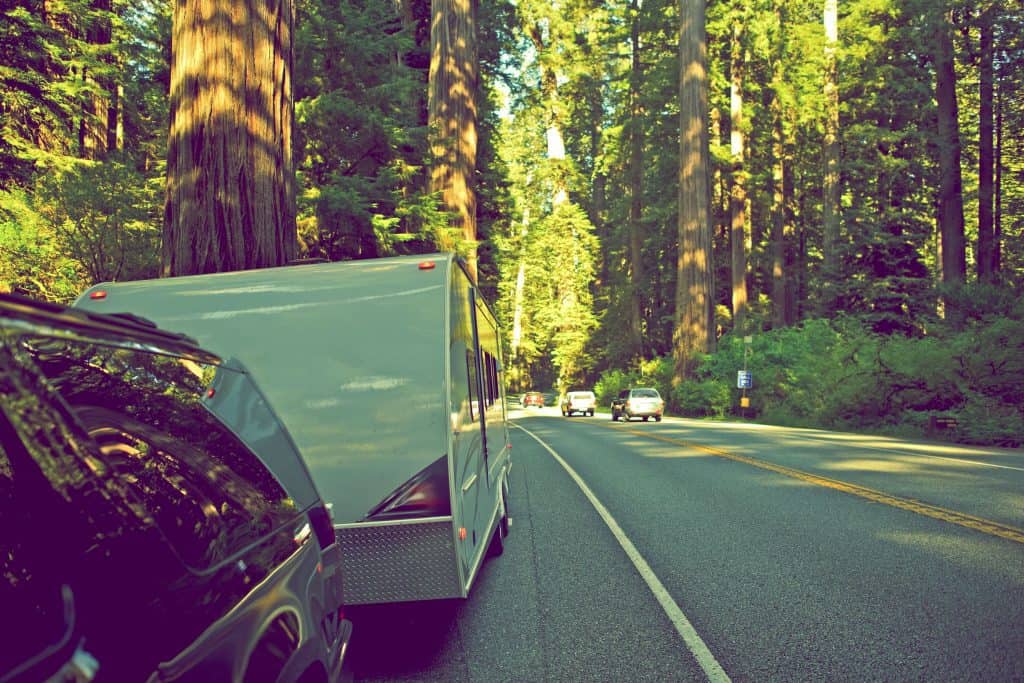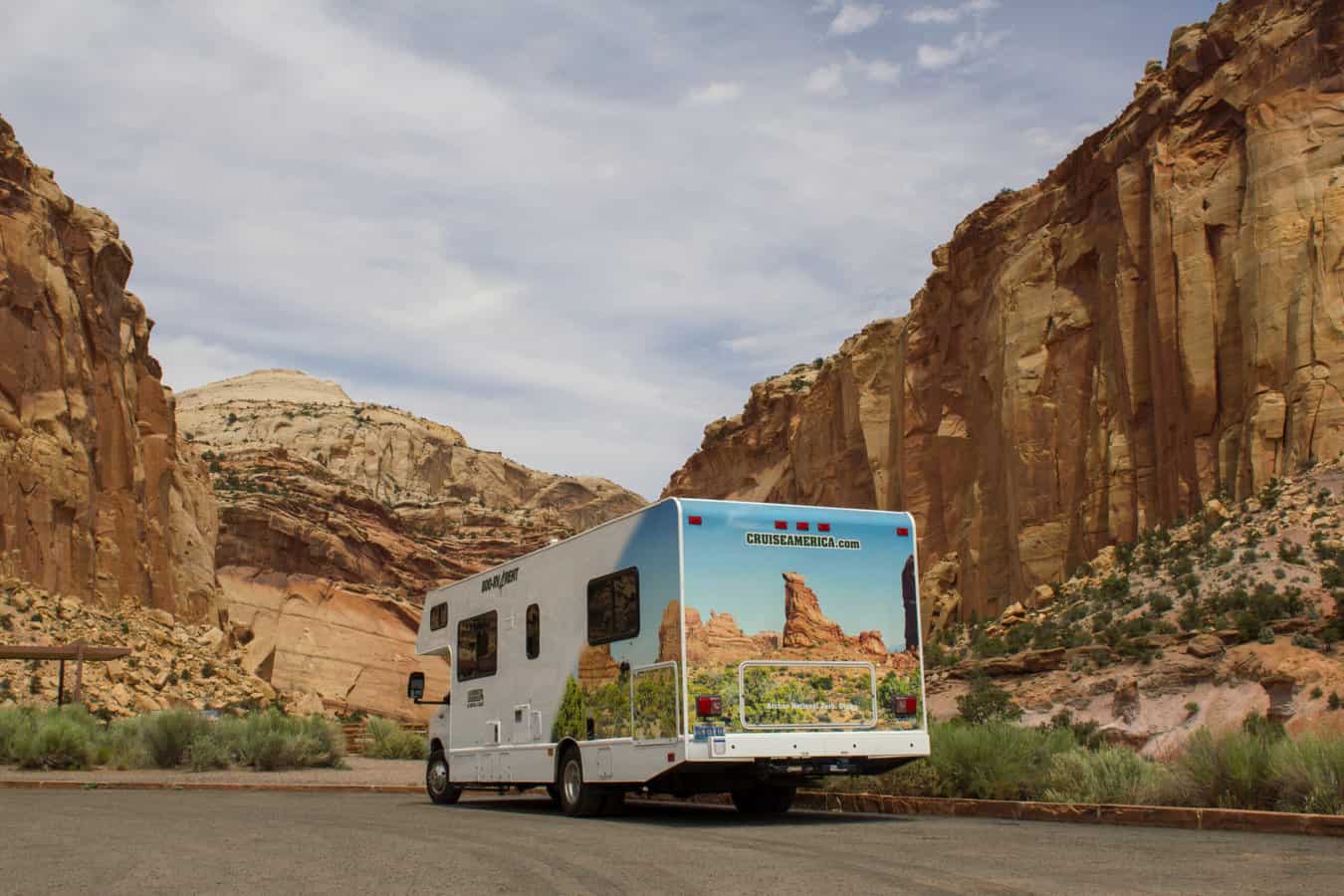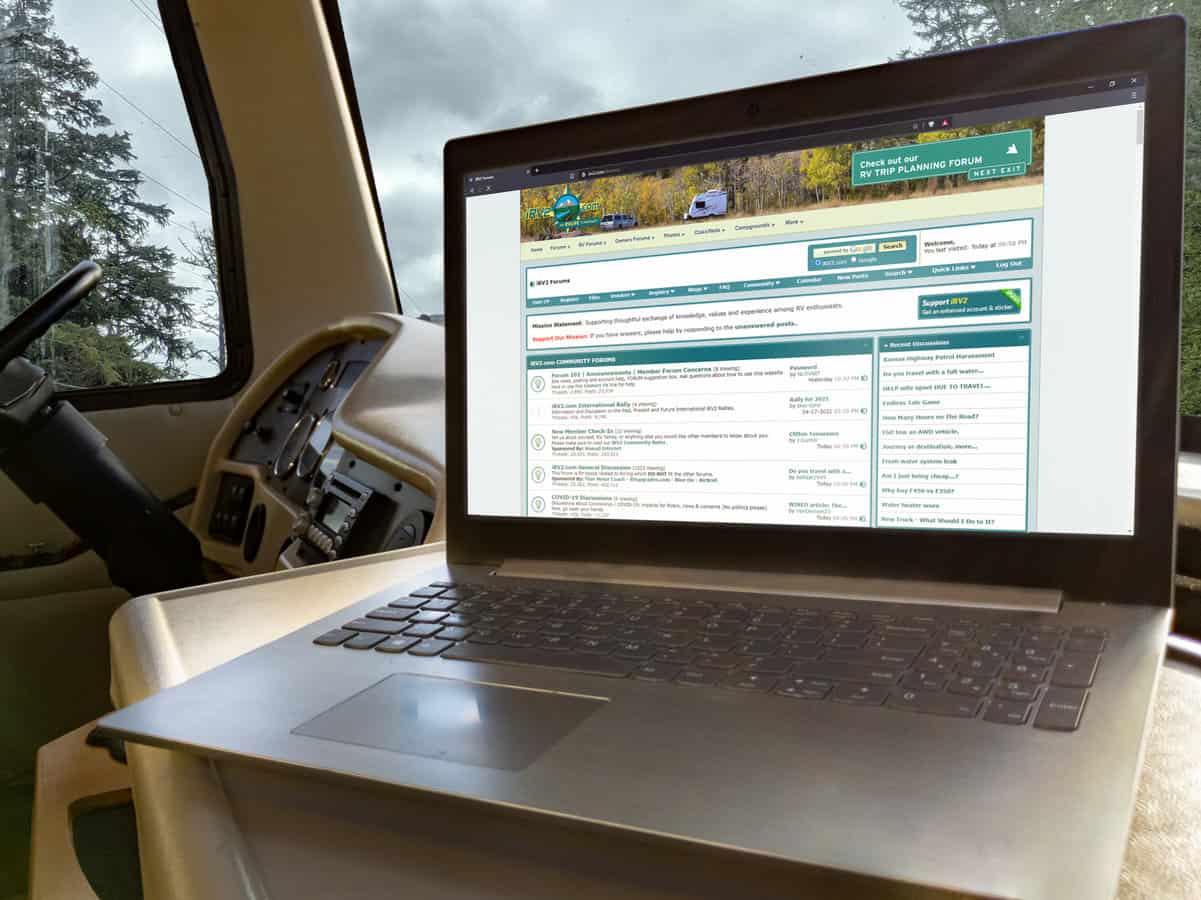
The difference between an RV, a Trailer, and a Motorhome may be confusing to some. I got curious and wondered whether or not an RV is a trailer. I did some research, and here’s what I found out.
Is an RV considered a trailer? A trailer is generally considered to be bump-pulled with a hitch. RV means Recreational Vehicle and includes trailers, motorhomes, and fifth wheels. Some people say “RV” and they mean “Motorhome”. So in that sense, no not a trailer. Basically, if you need a truck to tow it, it’s a trailer.
There are lots of definitions for all these different vehicles. Some run on their own. Some don’t. But whether you own one, are looking to own one, or are just curious, knowing the difference between these vehicles can’t hurt at all.
What is a Trailer?
A trailer is basically defined as something that is pulled behind another vehicle. It can be as rudimentary as a table with some tires attached and a hitch of some sort.
Trailers are used for all sorts of things, but the typical function of a trailer is to haul something that you really don’t want to push with your own force. Like a tractor. Or all of your earthly possessions. Or a boat.
The important thing to know about a trailer is that they do not run on their own. They don’t have engines or steering wheels. This is why, in most cases, an RV is a trailer.
RVs, Explained
To really answer this question, it is important to understand that the term ‘RV’ is exceedingly broad. The definition of an RV is basically a motor vehicle or trailer which includes living quarters designed for accommodation.
Types of RVs include motorhomes, campervans, caravans (also known as travel trailers and camper trailers), fifth-wheel trailers, popup campers, and truck campers. All of these vehicles look different, do different things, and cost different. So it is best to understand what each one is.
Motorhome
A motorhome (or motor coach) is a type of self-propelled recreational vehicle which offers living accommodation combined with a vehicle engine.
Motorhomes are part of the much larger associated group of mobile homes which includes caravans, also known as tourers, and static caravans. The overarching ‘mobile leisure’ terminology encompasses all aspects of the industry from caravan parks, sales dealerships, manufactures, holiday parks through to the vast supporting services to the sector.
Since motorhomes propel themselves and do not need to be dragged along by a truck, these types of RVs are not trailers.
Campervans
A campervan (sometimes referred to as a camper), or a caravanette, is a self-propelled vehicle that provides both transport and sleeping accommodation. The term mainly describes vans that have been fitted out, often with a coach-built body for use as accommodation.
Just like with the motorhome, due to the fact that a campervan has its own engine, it is not a trailer.
Caravans
A caravan, travel trailer, camper or camper trailer is towed behind a road vehicle to provide a place to sleep which is more comfortable and protected than a tent (although there are fold-down trailer tents). It provides the means for people to have their own home on a journey or a vacation, without relying on a motel or hotel, and enables them to stay in places where none is available. However, in some countries campers are restricted to designated sites for which fees are payable.
Caravans and travel trailers vary from basic models which may be little more than a tent on wheels to those containing several rooms with all the furniture and furnishings and equipment of a home. They are used principally in North America, Europe, Australia, and New Zealand.
No matter what country you use it in, a caravan is indeed a trailer, due to the distinct lack of the ability to move forward on its own.
Fifth-Wheel Trailers
A ‘fifth-wheel’ is a travel trailer supported by a hitch in the center of the bed of a pickup truck instead of a hitch at the back of a vehicle. The special hitch used for fifth-wheels is a smaller version of the one used on 18-wheeler trucks and can be connected by simply driving the tow vehicle under the trailer. Fifth wheel trailers are popular with full-time recreational vehicle enthusiasts, who often live in them for several months in one place, using their pickup truck tow vehicle for local errands.
A fifth wheel trailer tows more securely than a traditional travel trailer because the hitch weight sits directly over the pickup truck’s rear tires. Since part of a fifth wheel sits over the bed of the pickup, it also reduces the overall length of the vehicle/trailer package while allowing the same room as a comparable length travel trailer.
Additionally, the hitch’s location in the pickup’s bed reduces the risk of jackknifing and allows for more maneuverability when backing.
Because of the greater room available on the roads in North America, these vehicles are more popular in the United States and Canada than in Europe or other parts of the world. For uneven terrain, a gooseneck hitch is an option to fifth-wheel.
Pop-Up Campers
A pop-up camper is a type of towed recreational vehicle that can be collapsed for easy storage and transport. When it is set up, this type of trailer provides a large amount of interior space when compared to its size when collapsed.
Its relatively affordable price makes it a popular choice for some RVers and its small size contributes to easier towing than many other types of RVs.
And again, because it is towed behind another vehicle, this species of RV is indeed a trailer.
Truck Camper
A truck camper is a type of RV that sits in the bed of a pickup truck. These are mainly used in North America, and while they may be a bit out of fashion, they are still found today.
TC’s are very small, and sometimes difficult to use when accommodating more than one person. And it is important to be sure that you are using the proper types of shocks and stabilizers with your truck when you have a truck camper attached.
However, despite its small size, these little guys are interesting.
Since they technically sit in the bed of the pickup, and are attached to it permanently more often than not, there is some debate as to whether or not it is a trailer, or if it is more of a motorhome.
Personally, I would advocate that a truck camper is indeed a trailer because
The Big Decision
So, if you happen to be engaged in the glorious pursuit of a recreational vehicle, you have some studying to do. There are some important questions you will need to ask yourself, such as:
- How much do I want to spend?
- How much space do I need?
- How often will I be using it?
- Will I need it to be self-propelled?
- Do I have a vehicle that is a suitable tow?
After carefully studying the desires of your heart regarding this exciting decision, and now that you understand the different types of RVs, you should be able to choose a type of RV without much difficulty. And if you were only curious as to what the difference was, now you know.
Related Questions
Are motorhomes expensive? Usually, for a decent motorhome, the price tag will read about $100,000. So it is important to know for a certainty that a motorhome is really what you want. In contrast, a new camper trailer will only run you about $20,000, provided you already have the truck to tow it. Be sure to do your research about price, and whether or not you own the necessary accessories.
Do camper trailers have electricity? Camper trailers on their own do not have electricity. Sometimes, you can draw power from your car’s engine, but it won’t get you a ton of power. Using the car engine, you should be able to get a TV and lights working, but that is about it.
To get things like power outlets to work in your camper trailer, you will need a generator to provide the power.
Do camper trailers have AC? Just like with electricity, camper trailers do not have enough power to supply adequate AC on their own. You will need to hook up a generator if you don’t want to bake to death during your trip.
However, it is important to note that your generator will be working very hard and using a lot of gas to provide AC, so it is often better to use it sparingly.



